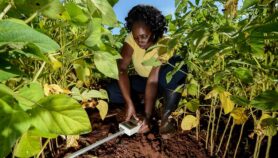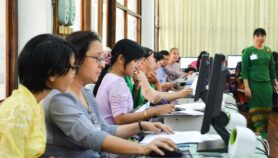By: Paula Leighton
Send to a friend
The details you provide on this page will not be used to send unsolicited email, and will not be sold to a 3rd party. See privacy policy.
Two separate studies on rotavirus vaccines, tested in more than a dozen Latin American countries, have been recognised by the Lancet as joint paper of the year for 2006.
The studies are the most extensive research conducted so far on the leading cause of diarrhoea-related illness and death among infants and young children.
Following the studies, the vaccine rotarix has been approved in more than 80 countries and is used in programmes in Brazil, Mexico, Panama and Venezuela.
The vaccines were originally tested in more than a dozen Latin American countries. The rotateq vaccine, for example, was tested on 68,000 children from Costa Rica Guatemala Jamaica and Mexico as well as seven other countries in the developed world.
Each vaccine was able to prevent 85–98 per cent of all severe cases of rotavirus-caused diarrhoea, which kills more than 600,000 children a year in the developing world.
Both papers were published in the New England Journal of Medicine and concluded that oral vaccines were effective against severe rotavirus gastroenteritis and rotavirus associated hospitalisation cases (see Double vaccine victory over rotavirus).
Every year, rotavirus is associated with 25 million clinic visits, 2 million hospitalisations, and more than 600,000 deaths worldwide among children younger than five years old.
“Almost 95 per cent of the research work was conducted in Latin America, which makes us proud,” Miguel O’Ryan of the University of Chile, lead author of the rotarix paper, told SciDev.Net.
“It shows we have experts conducting quality research, exportable worldwide and is helping saving thousands of lives,” said O’Ryan.
The researchers warned that more studies are required to test the vaccines’ effectiveness in Asia and Africa, where the burden of rotavirus is greatest.
The editors praised the research and said these vaccines are likely to one day “stand alongside smallpox, measles, and poliomyelitis vaccines” in their benefit to global public health. They noted that treatment for rotavirus suffered a serious setback in 1999 after the Rotashield vaccine was withdrawn for safety reasons. The latest research, they concluded, “make immunisation against this infection a practical reality again.”












